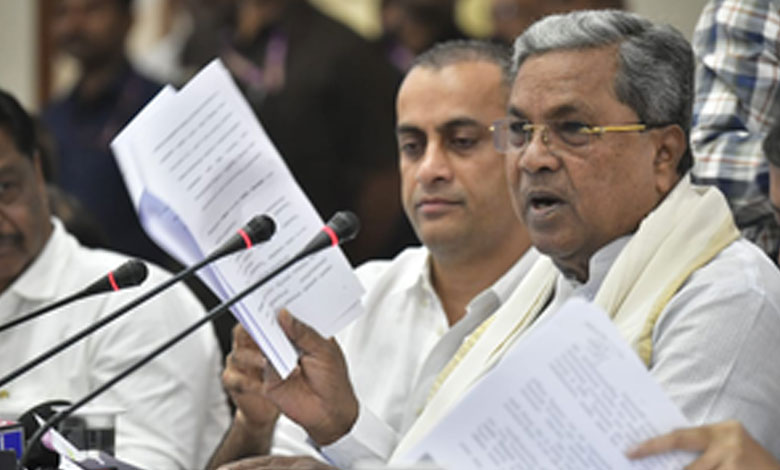Karnataka Caste Census Reveals Muslims at 18.08% Population, Recommends 8% Quota
The controversial caste census report submitted by the Backward Classes Commission to the Congress-led Karnataka government pegs the Muslim population at 18.08 per cent and recommends 8 per cent reservation for the community, sources confirmed on Sunday.

Bengaluru: The controversial caste census report submitted by the Backward Classes Commission to the Congress-led Karnataka government pegs the Muslim population at 18.08 per cent and recommends 8 per cent reservation for the community, sources confirmed on Sunday.
Table of Contents
Current Reservation for Muslims
At present, Muslims in Karnataka are entitled to 4 per cent reservation. The report, however, suggests doubling this quota to 8 per cent under Category 2B. This marks a significant increase and places the Muslim population ahead of several other dominant communities in terms of numbers.
Report Submission and Government Response
The caste census report was submitted to the state cabinet on April 10. A special cabinet meeting is scheduled for April 17 to deliberate on the report’s recommendations. No official statement has been made public yet, but details from the cabinet meeting have leaked into the public domain.
Follow for more details: munsifdaily.com
Major Highlights: Population Estimates and Recommendations
According to the report:
- Muslim Population: 75.25 lakh (18.08%) – Recommended reservation: 8%
- OBC Population: 4.18 crore (approx. 70% of total population) – Recommended reservation: 51% (up from 31%)
- Scheduled Castes (SCs): 1.09 crore – Recommended reservation: 24.1% (unchanged)
- Scheduled Tribes (STs): 42.81 lakh – Recommended reservation: 9.95%
- Lingayat Community: 66.35 lakh (11.09%) – Recommended reservation: 8%
- Vokkaliga Community: 61.68 lakh (10.31%) – Recommended reservation: 7%
- Category 1A: 73.92 lakh (includes Golla, Uppara, Mogaveera, Koli) – Recommended reservation: 12%
- Category 2A: 77.78 lakh (includes Madivala, Ediga) – Recommended reservation: 10%
Proposed Total Reservation Exceeds 75%
The report suggests that total reservation in Karnataka should be raised beyond the current constitutional limit of 50 per cent, reaching over 75 per cent. This is in line with the state government’s stance that the cap was already exceeded at the central level through the implementation of the 10 per cent Economically Weaker Sections (EWS) quota.
Political Implications and Reactions
The findings are expected to spark a major political debate. Several Congress leaders, including Labour Minister Santhosh Lad and MLC B.K. Hariprasad, have expressed support for increasing reservation limits based on empirical data from the caste census.
Deputy Chief Minister D.K. Shivakumar stated that the government will not take any hasty decisions and that the report will be discussed in detail.
Also Read: Bengaluru Metro Station or OYO Room? Young Couple’s Immoral Act Goes Viral
Allegations of Flaws in the Report
Leaders from the Lingayat and Vokkaliga communities have criticized the report, calling it flawed and biased. They claim that the data underrepresents their actual population. Leader of Opposition R. Ashoka alleged that the census was politically motivated and not conducted scientifically.
History of the Caste Census
The Karnataka Socio-Economic and Educational Census was first ordered in 2014 by then Chief Minister Siddaramaiah. The survey, conducted under the leadership of Backward Classes Commission Chairman H. Kantharaju, cost around ₹169 crore and was completed in 2016. However, it was shelved by successive governments, including the Congress-JD(S) coalition and the BJP administrations.
In 2020, BJP appointed Jayaprakash Hegde as the new commission chief. The final report was submitted to the Siddaramaiah-led Congress government on February 29, 2024.
Volume and Scope of the Report
Sources said the caste census report spans over 46 volumes, with supporting data submitted in two CDs. The report covers a wide range of socio-economic and caste-related details.
